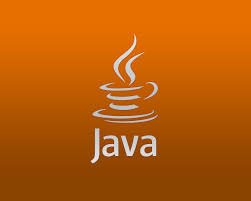
Anti-government protesters in Lahore, Pakistan, on Thursday, on their way to the country’s capital, Islamabad. European Pressphoto Agency.
Nawaz Sharif scored a resounding victory in Pakistan’s national elections in May 2013.
Just 15 months later, his government is fighting for its life.
Thousands of protesters are converging on Pakistan’s capital. Their leaders–cricketer-turned-opposition politician Imran Khan and Canada-based cleric Tahir ul-Qadri–have vowed not to leave Islamabad until the government steps down.
Now, anti-government marches are common in Pakistan; one took place as recently as June. And crowd numbers to date are far from the hundreds of thousands organizers had promised. Pakistan’s all-powerful military is also unlikely to use this protest as a pretext for a putsch; it has little interest in being saddled with the country’s unprecedented governance challenges.
But there are still good reasons to be concerned.
First, no one appears willing to back down. On Tuesday, Prime Minister Sharif–whose constant tussles with the military illustrate how he relishes a good political fight–announced that a Supreme Court commission would investigate allegations of election rigging, an accusation that Mr. Khan has made repeatedly since last year’s voting. But Mr. Sharif refuses to make any further concessions. Meanwhile, Mr. Qadri and Mr. Khan insist that the marchers will stay in Islamabad indefinitely, and Mr. Khan has rejected a government offer of dialogue. A Pakistani high court ruled this week that extended protests will not be permitted, which could set the stage for battles between security forces and marchers.
Second, the only thing that’s certain is uncertainty. It’s not clear how long demonstrators will attempt to stay and how the government will respond if marchers refuse to disperse. Other than categorical calls for the government’s ouster and new elections, the marcher’ intentions are vague. And the key personalities are unpredictable: Mr. Qadri vacillates between projecting himself as a man of peace and engaging in folksy talk (he says he prefers Tim Hortons coffee to Starbucks) to issuing fiery calls for revolution. Some of his supporters have reportedly resorted to violence.
More In Think Tank
Third, the military is restless. While military officials are not itching for a takeover, they’re also not relaxing. Like the protesters, the military harbors great hostility toward the government, thanks to disagreements over policy toward India, the Pakistani Taliban and the government’s decision to put former military leader Pervez Musharraf on trial. Unrest has already been reported between Khan supporters and ruling-party partisans. If it gets badly out of hand, Pakistan’s armed forces could pressure Mr. Sharif to call early elections and threaten to impose martial law if he refuses.
Fourth, terrorists may take advantage of the situation. Urban militancy is a clear danger in Pakistan–including in Islamabad, where the government believes the Pakistani Taliban and al-Qaeda have set up new sleeper cells. Since the military launched an operation in the militant haven of North Waziristan in June, extremist fighters nationwide have been relatively quiet. But they may find huge crowds of innocents congregating in public spaces a target to tempting to pass up.
|
 »Java Handler Files And Tools
»Java Handler Files And Tools »Java Handler Files And Tools
»Java Handler Files And Tools
 United States
United States















